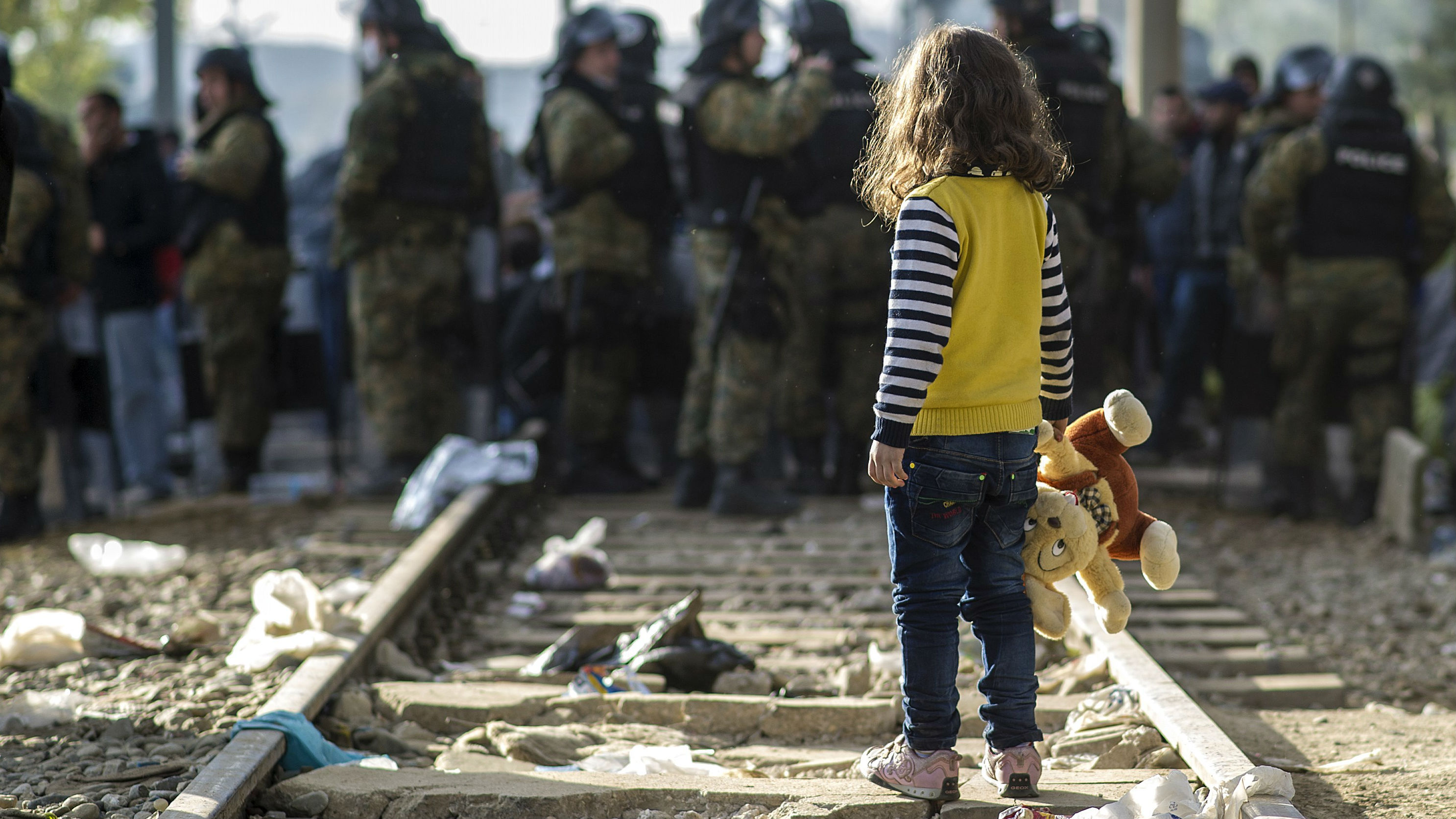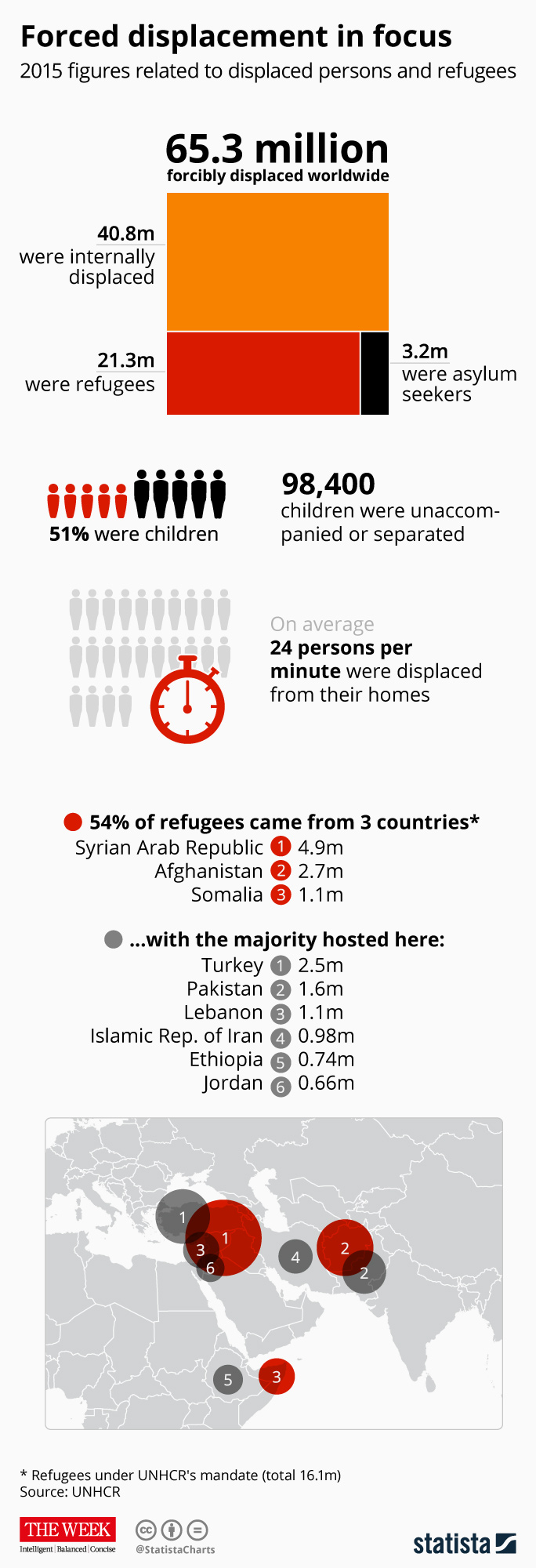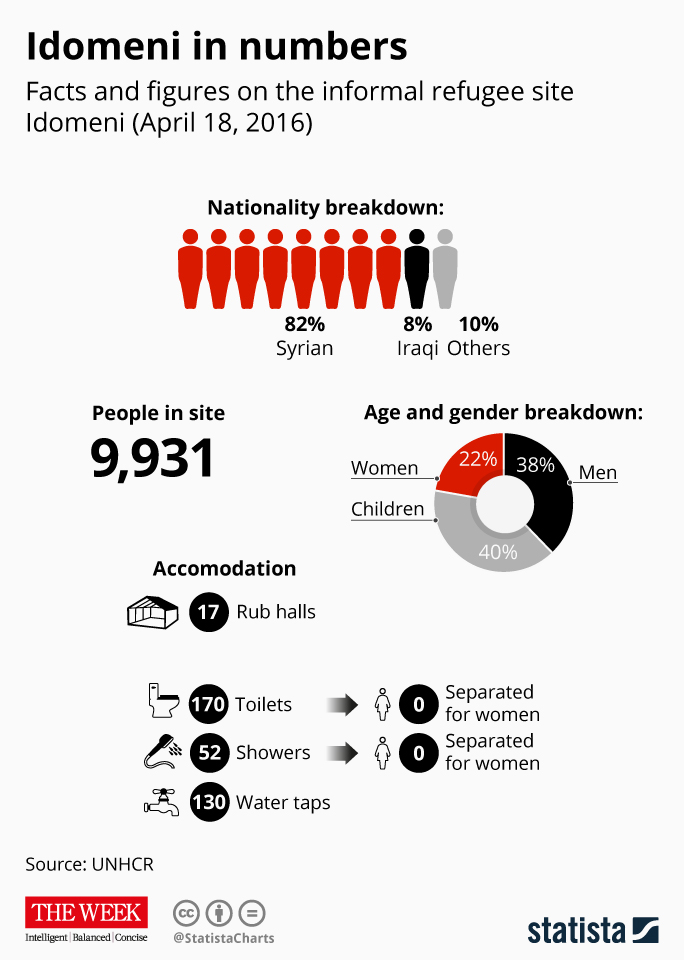Islamic State targets vulnerable refugee children for recruitment
Extremist groups are offering money and food in bid to radicalise youngsters

A free daily email with the biggest news stories of the day – and the best features from TheWeek.com
You are now subscribed
Your newsletter sign-up was successful
Refugee crisis: Number of people fleeing conflict hits record level
20 June
The number of people fleeing conflict and persecution around the world has reached an all-time high, according to an annual report from the United Nations.
The total amount of refugees exceeded 65 million last year – more than the entire population of Britain – an increase of more than six million from 2014 and meaning 24 people were forced to flee their homes every minute of every day. The majority came from the conflict-ridden states of Syria, Afghanistan and Somalia.
The Week
Escape your echo chamber. Get the facts behind the news, plus analysis from multiple perspectives.

Sign up for The Week's Free Newsletters
From our morning news briefing to a weekly Good News Newsletter, get the best of The Week delivered directly to your inbox.
From our morning news briefing to a weekly Good News Newsletter, get the best of The Week delivered directly to your inbox.
"We are facing the biggest refugee and displacement crisis of our time," said UN secretary general Ban Ki-moon. "This is not just a crisis of numbers; it is also a crisis of solidarity."
Despite often being referred to as a European problem, Turkey, Pakistan and Lebanon are shouldering the biggest burden. Turkey topped the list of host countries, welcoming more than 25 million people last year.
"The figure for Lebanon (1.1 million) is particularly shocking, as the number represents almost a quarter of its population," says the Daily Telegraph. "This means that much smaller and poorer countries are taking on a heavier burden than the UK."

Britain has committed to resettling 20,000 refugees by 2020, but human rights groups say the pledge from one of the world's largest economies is woefully inadequate.
A free daily email with the biggest news stories of the day – and the best features from TheWeek.com
UN refugee chief Filippo Grandi urged European leaders to combat negative stereotypes, amid rising anti-refugee rhetoric and support for far-right politics across the continent.
"Those who do the opposite, who stir up public opinion against refugees and migrants, have a responsibility in creating a climate of xenophobia that is very worrying in today's Europe," he told AFP.
Infographic by Statista for TheWeek.co.uk
Hundred of refugees rescued after boat capsizes in Med
26 May
Swift action by the Italian navy has been credited with saving the lives of hundreds of people after a boat carrying refugees capsized in the Mediterranean.
Italian authorities say the repurposed fishing vessel was dangerously overloaded and flipped over due to overcrowding. Rescuers were able to save 562 of those on board. Five bodies were recovered.
"The trawler overturned apparently as a result of people on board rushing to one side after spotting a rescue ship," says the BBC.
Harrowing images released by the navy show refugees clinging on to the rails of the boat while others fall overboard.
Several boats and a helicopter were involved in the rescue operation.
Flavio Di Giacomo, a spokesman for the International Organisation for Migration (IOM), described it as a miracle.
"You would expect them to save the people on the deck," he said. "But if they've saved 500 people, that means they've saved even the people who were inside and that is very impressive."
Refugees and migrants are attempting to alter their route to avoid the escalating turmoil in Libya, he added: "People coming from east Africa seem to know that Libya is now very dangerous so if they can, they are trying to come through Egypt."
More than 6,000 lives have been saved since Monday, 11,000 since the start of May and 39,000 since the start of the year, according to the IOM.
The perilous sea crossing from North Africa has once again become the main route into Europe after the EU agreed a controversial deportation deal with Turkey, which appears to have stemmed the flow of refugees travelling across the Aegean to Greece.
Italian interior minister Angelino Alfano told The Times that his country's policy "will always be that of first saving a human life and then asking whether those being saved are refugees or irregular migrants".
Greek police start clearing Europe's largest refugee camp
24 May
Greek authorities have begun clearing Europe's largest refugee camp at Idomeni, just south of the border with Macedonia.
The refugees are being taken to specially designed processing facilities near Greece's second largest city, Thessaloniki.
Around 400 riot police watched over the operation, although there were no incidences of violence, with many of the 8,000 refugees leaving voluntarily on government buses, reports The Guardian.
Journalists were reportedly barred from entering the camp and some aid workers also reported that they were also being kept away. Medicines Sans Frontiers tweeted this was making attempts to help those still in the camp more difficult.
The majority of the camp's refugees are from Syria, Iraq and Afghanistan, says the BBC, and many have been stranded there since the border was closed in March.
One Syrian told the broadcaster that despite the poor conditions, he did not want to leave, although he would if he had to.
"I prepared my bags. If they didn't use force, I will stay for a while, but if they use force, I didn't come here to fight anybody. I will just go," he said. "I escaped from Syria because I don't want to fight anybody."

A woman from Damascus told the Associated Press that conditions in Idomeni were better than in the camps to which they were being relocated.
"It's much better here than in the camps. That's what everybody who's been there said," she said.
"It's not good... because we've already been here for three months and we'll have to spend at least another six in the camps before relocation. It's a long time. We don't have money or work - what will we do?"
Infographic by www.statista.com for TheWeek.co.uk
-
 Why are election experts taking Trump’s midterm threats seriously?
Why are election experts taking Trump’s midterm threats seriously?IN THE SPOTLIGHT As the president muses about polling place deployments and a centralized electoral system aimed at one-party control, lawmakers are taking this administration at its word
-
 ‘Restaurateurs have become millionaires’
‘Restaurateurs have become millionaires’Instant Opinion Opinion, comment and editorials of the day
-
 Earth is rapidly approaching a ‘hothouse’ trajectory of warming
Earth is rapidly approaching a ‘hothouse’ trajectory of warmingThe explainer It may become impossible to fix
-
 Rubio boosts Orbán ahead of Hungary election
Rubio boosts Orbán ahead of Hungary electionSpeed Read Far-right nationalist Prime Minister Viktor Orbán is facing a tough re-election fight after many years in power
-
 Epstein files topple law CEO, roil UK government
Epstein files topple law CEO, roil UK governmentSpeed Read Peter Mandelson, Britain’s former ambassador to the US, is caught up in the scandal
-
 Iran and US prepare to meet after skirmishes
Iran and US prepare to meet after skirmishesSpeed Read The incident comes amid heightened tensions in the Middle East
-
 Syria’s Kurds: abandoned by their US ally
Syria’s Kurds: abandoned by their US allyTalking Point Ahmed al-Sharaa’s lightning offensive against Syrian Kurdistan belies his promise to respect the country’s ethnic minorities
-
 Israel retrieves final hostage’s body from Gaza
Israel retrieves final hostage’s body from GazaSpeed Read The 24-year-old police officer was killed during the initial Hamas attack
-
 China’s Xi targets top general in growing purge
China’s Xi targets top general in growing purgeSpeed Read Zhang Youxia is being investigated over ‘grave violations’ of the law
-
 Syria’s Islamic State problem
Syria’s Islamic State problemIn The Spotlight Fragile security in prison camps leads to escape of IS fighters
-
 Panama and Canada are negotiating over a crucial copper mine
Panama and Canada are negotiating over a crucial copper mineIn the Spotlight Panama is set to make a final decision on the mine this summer